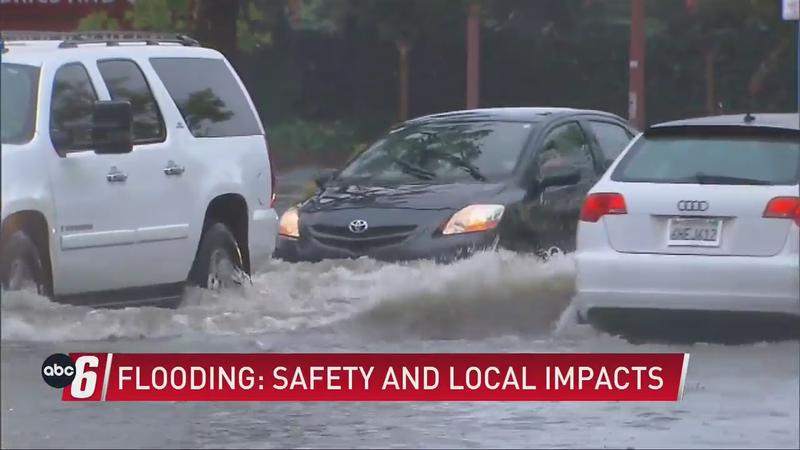Severe Weather: Flooding
[anvplayer video=’5100921′ station=’998128′]
(ABC 6 News) – Heavy rainfall, especially around lakes and rivers, can lead to the flooding of communities. Sometimes, it can happen in a flash.
Meteorologist Todd Shea from the National Weather Service in La Crosse, WI elaborates on the meaning of a flash flood. “The tricky part with the phrase “flash” means it’s happening very quickly. In a matter of minutes or a few hours.”
According to the National Weather Service, flooding is the number one cause of thunderstorm-related deaths in the U.S., killing about 100 people each year.
Officials say it only takes about six inches of water to take down an average adult and about a foot of water to stall or even wash away a car. You may find yourself having to take an alternate route to get around flooded areas.
Shea has done some research on flooding, and he found this out during his research. “90 percent of the fatalities from flooding occur from people deciding to go into that high water.”
The deadliest scenario for flooding is driving at night due to it being harder to see the road for extended distances. Authorities say the best advice they can give is to head to higher ground and get out of potential danger.
In some cases, plastic barriers around basement windows can help limit or event prevent flooding depending on water levels.
However, even barriers are not guaranteed to prevent flooding like what we saw in 1978.
Dan Miller, the Farm Management Instructor at Riverland Community College and person who runs Valley Angus Farm in Spring Valley, MN recalls the flooding in 1978. “I was 13 at the time, and the horses’ hooves… it was so soft in the soil, I was sinking in the cornfields. I thought I have to get out of here.”
On the evening of July 5, 1978, more than six inches of rain fell in both Rochester and Austin in the span of just a few hours and the Zumbro River overflowed, costing millions of dollars in damage and killing five people.
In addition to the physical dangers of flooding, it can also be devastating to farmers and those in the agriculture industry. Miller says heavy rain in spring can be disastrous to the soil; it can cause erosion, which can lead to crop rot or fungus.
It can also cause delays in planting, costing farmers a lot of money.
Download the ABC 6 NEWS NOW app for severe weather, breaking news, and the day’s top stories.
